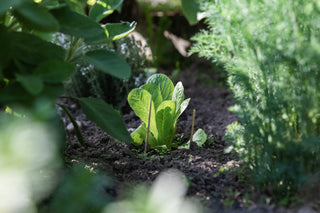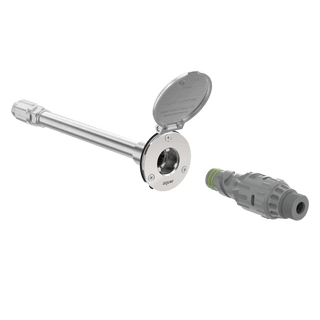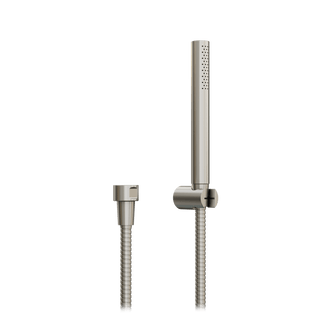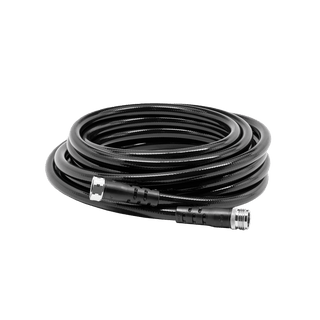How to Prevent and Reduce Weeds, Naturally

Weeds can be pesky and stubborn, showing up in your garden and potentially taking over. We have a few ideas to help prevent weeds, and if they do appear, how to successfully remove them naturally. No herbicides or chemicals here!
Prevention Methods
Mulching
A thick layer of organic mulch (like straw, wood chips, or grass clippings) blocks sunlight, preventing weed seeds from germinating.

Bonus! Mulch improves soil quality as it breaks down and retains moisture for plants.
Ground Covers or Dense Planting
Growing ground cover plants (like clover or creeping thyme) or planting crops close together reduces the space available for weeds to take root. These cover crops can also enrich the soil with nutrients.
Corn Gluten Meal
Corn gluten meal acts as a pre-emergent herbicide, inhibiting weed seeds from sprouting. Spread it over garden beds in early spring before weed seeds begin to germinate.
Landscape Fabric
Placing landscape fabric over garden soil prevents weed growth by physically blocking the weeds. Cut small holes for your plants to grow through. Fabric can be used under mulch for extra protection.
Proper Watering Techniques
Water only your plants, not the entire area, using methods like drip irrigation. Weeds need water to thrive, so targeting your plants deprives weeds of essential moisture.
Solarization
Cover a section of soil with a clear plastic sheet during hot months. The heat trapped under the plastic kills weed seeds and roots.
Natural Weed Removal Methods
Hand Weeding
Manually pull weeds out by their roots to prevent regrowth. It’s best to do this after watering or rain when the soil is soft.

Tip: Use a weeding tool or a hoe to make the job easier.
Boiling Water
Pour boiling water directly on weeds, scalding the plant and roots.
This strategy works best for driveways, sidewalks, or cracks in patios. Be careful not to get boiling water on plants you want to keep.
Vinegar Solution
Mix white vinegar with a little dish soap then spray the solution directly on the weeds. The acetic acid in vinegar dries out the plant. Vinegar can kill other plants, so apply it carefully and on a hot, sunny day.
Salt
Sprinkle salt at the base of weeds. This method will dehydrate the weeds, killing them.
Caution: Be cautious with salt, as it can harm the soil and surrounding plants if used in excess.
Smothering Weeds
Place cardboard, newspaper, or old fabric directly on top of the weeds then cover with mulch. This approach blocks sunlight, preventing the weeds from growing. (Best for large garden areas and pathways.)
Weeding Torch
A flame weeder uses propane to create heat, which kills weeds by disrupting their cells.
Caution: Use this method carefully, especially in dry conditions, to prevent fire hazards.
Long-Term Practices
Regular Tilling
Tilling the soil regularly disrupts weed roots and prevents them from growing. Be cautious, though, as excessive tilling can disrupt beneficial soil organisms.
Maintaining Healthy Soil
Healthy, nutrient-rich soil encourages strong plant growth, which helps plants outcompete weeds. Regularly add compost and organic matter to improve soil quality.

Cover Crops
How it works: Planting cover crops like legumes, buckwheat, or rye in the offseason helps suppress weed growth, improve soil, and add nutrients.

By combining these natural prevention and removal methods, you can effectively control weeds without harmful chemicals, while promoting a healthy garden environment.














